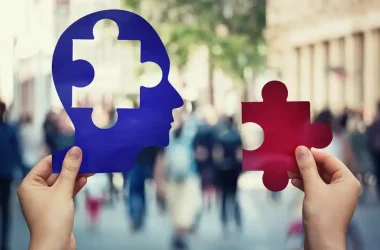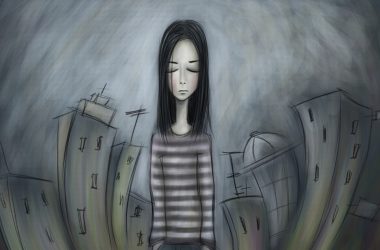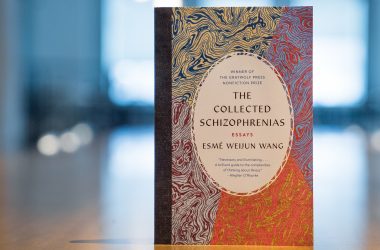This one time I had gone to receive a vaccination for Hepatitis B. I was 8 years of age and the eldest in the doctor’s waiting room. I was consoling my cousin and two other random kids while the doctor was administering their vaccine with an injection. I asked them to be brave and advised them to look away, it would be over before they would know it. When it was my turn to be injected, it took me a gazillionth of a second to forget my own advice; instead, I chose to begin bawling at an operatic pitch and beckoned the kids I had comforted minutes earlier to be by my side. It took a really ingenious and comforting compounder to calm me down enough to sit still for ten seconds and get my shot.
I am reminded of that episode as I try my hand at being a student after a gap of seven years. En route to our first class, I replied to queries from future classmates I was yet to meet on a newly fangled WhatsApp group, notwithstanding the little detail that I myself had no clue what to expect. I have been selected for a year-long psychological counselling course at a prestigious university in India. It might help me realize my tentative and hence tender dream of becoming a mental health care professional. For me, it was a day of reckoning of sorts because I am a survivor as well. I have had my fair share of experience with counsellors, therapists, psychiatrists et al.
In classic inspiring-biopic fashion, the protagonist is about to begin a transformative journey. Without further ado, I will take you back into an expository flashback about how I came to be where I am.
It was 2015 and I was working my second job as a features writer with a magazine. I was actually quite good at my job; within the first few months, I had been promoted from a sub-editor on the web desk to a writer for the main magazine. I was staying away from home, which gave me my first taste of independence. I had always dreamed of growing into a woman like Aisha from “Wake up Sid!” but instead of having the “independent girl doing independent things” montage in a new city (in my case, New Delhi), I realised I was more of a Sid; directionless and in need of guidance, but quite without his carefree joie de vivre.
My version of Sid alternated between being crumpled into a ball of anxiety and this ghost-like inert presence with a distaste for living. When a senior colleague mildly hinted that I might be depressed, it burst my final bubble. I had failed to keep my demons private like most adults do. So I went to a counsellor. Again. After a gap of almost seven years.
I barely had enough time to realise that I had completely neglected my mental health for over half a decade, before slipping into a meltdown. I quit my job and came back to my hometown. A sabbatical, I told myself, which turned into an employment hiatus of three years; some of it voluntary, some of it involuntary.
During those years, I wrestled with the whimsical and demanding monster/pet that was my mental health, as it continued to interfere with my ability to adult like the rest of my peers. I did not have a job in my mid-twenties when those around me were in the serious business of ‘building careers,’ nor did I have the mental energy to want to look for one.
A couple of personal tragedies set the tone for what was to come. In mid-2016, I lost my aunt to cancer. Six months later, my mother was diagnosed with early-stage uterine cancer. Her treatment began immediately and in due time, she made a full recovery. In an attempt to ‘adult’ again, I tried to be there for my mother, but instead, my mental health pulled me downwards, deeper into a spiral.
Taking recourse to therapy and medication complicated matters further. The medication slowed me down and made me foggy. For four months or so, I felt myself slip back to my time as a baby. I could do little besides eat and sleep (I wish I had the baby cuteness at least!). I gained weight, a lot of it, which made all my childhood body image issues return with a vengeance. I refused to step outside. Once, my cousin had to coax me for two days before I agreed to a movie date. The other adult part of my life turned out to be a hoax as well. My relationship fell apart. I am surprised my partner stayed around for as long as he did, given how difficult, distant, demanding (and dramatic) I was, all at once.
At the time, I obsessively sent him articles and links. Mostly on mental health and how to care for someone struggling with it. To be fair, he tried to keep up, but I was the first person in his life who had a ‘diagnosed’ mental health issue. Given how little we talk about this in our mainstream culture, he was at sea. He did not know how to reach me, neither could I muster the stamina to break out of my dark shell and give him an inspiring TED talk. Besides, when I tried, the TED talks mysteriously transformed into exhausting, shouting matches.
The icing on the cake was when Polycystic Ovary Syndrome (PCOS) made a dramatic entry in my life. This was the first time that a decade of deteriorating mental health and its neglect had made its presence felt through physical symptoms. Until then, my mental health and the ‘issues’ I had seemingly ‘made up,’ were slightly compounded by the fact that my parents were equally in denial about it. My lethargy, lack of judgement and decision-making skills, and the overlay of fear through which I saw life were seen as random occurrences disconnected from my mental health. PCOS is closely linked to anxiety and vice-versa, so I could not have possibly be lying about all of it. This was the first time I felt like a real person, which is a vital pre-cursory step in the stairway to adulthood.
Did I mention my mental health caused certain dysfunctions in me? Well, it so follows that our mental health struggles tamper with our ability to be resilient in the face of odds. Sometimes it makes small impediments look like insurmountable obstacles, and sometimes it interferes with our ability to responsibly make the right decisions. In 2018, I decided to learn the art of deciding.
At the time, I was in denial about the fact that my then therapist and I were not a good match, and that I was too polite to end it. I was unemployed (which is a euphemism for broke) and was paying her an astronomical figure to go into a dingy clinic at the back of a decrepit building and listen to her tell me I simply needed to ‘get over’ my issues. However, there was the little matter of her forgetting to map out the ‘how’ for me, or at least provide me with tools to reach this desired outcome. Eventually, one day I felt judged by her after sharing a particularly vulnerable episode and decided it was a deal-breaker. I stopped going.
It was a liberating choice, which further helped me see that the medication prescribed to me was not ‘curing’ my symptoms, but muffling them. With a support system of friends and family in place, I discontinued them. Going off medication is always a risky move. Perhaps the fact that I had not been taking them for a prolonged period helped; in hindsight, this decision worked for me.
With my new found momentum, I found myself a couple of job prospects. My purple patch with ‘good decisions’ ended when I chose a job that would pay well but was vastly incompatible with my skill set. I moved to a new city once again, but it did not take a year this time. Within the first month, I had panic attacks, decided to pause my plans to adult again, and quit the job.
Albert Camus said, if you look hard enough into the abyss, the abyss looks back at you. To me, it felt that my abyss had defeated me quite resoundingly in a staring match. As my eyes watered, and my vision swam out of focus, I was reminded of something my father used to tell me to soothe the angst of my adolescent years; ‘it is the darkest before dawn.’
Putting my job-hunting spree on hold, I found myself a psychologist. This time it felt right, she was a friend on social media and it was by sheer coincidence that I came across her name in a crowd-sourced list of mental health professionals. I call her Oogway (for the lesser mortals out there, this is a Kung Fu Panda reference – but that’s a story for another day).
A few months into therapy, when we both were comfortably settled, Oogway made a surprising request to me; in this clearly difficult, albeit transformative, phase, she asked me to treat myself as I would a very good friend. It was the oddest little thing.
The only arena I have ever given myself any credit for were earnest attempts at being a good friend. I try to be a patient listener without any judgment. In their hours of doubt, I try to remind my friends that what they may consider to be weaknesses, could be the very resources that make them the resilient, strong, kind, sensitive people they are. With a chill I realised, I had failed to be my own friend. I had been overly critical of my failures and doubted my capacity to heal. I had not held space for myself the way I would for a close friend.
I got a job offer at the beginning of 2019. It was not half as ambitious as the last job I had attempted, the pay was modest but it would allow me to breathe and balance my life. Keeping with my recent project of being my own friend, I accepted that my hiatus of three years meant I needed to ease myself into ‘adulting’ ever so slowly, sans any sudden plans of diving into the deep end. I accepted that there was no positivity shortcut I could take, bypassing the beautifully winding, and somewhat loopy paths of healing.
A year or so later, I can look back and say this is the longest I have ever been at a job. The past year has not been without its ordeals, and on more than a few occasions, it felt as though my abyss was catching up with me. But with a little help from my friends and good therapy, I held on. Somewhere along the road, I got to know about this course on psychological counselling, and it felt like a lightbulb moment.
Over the years, grappling with my menagerie of personal demons, I have had quite a few experiences. On the scale of good to bad to ugly, most were so unexpected that they are best described as comic. I have despaired at the state of mental health care infrastructure and the acute lack of awareness and empathy in India. On the other hand, I have also been humbled by my tryst with a few good people, and the impact one generous, mental health care professional can have in the face of incompatible ones. I found that the best results are often when I try to help myself. And a good psychologist leads one to the point where they find it is okay and surprisingly addictive to trust one’s self.
During the introductory class of our course, a professor remarked that Buddha was the first great psychologist because it was he who suggested that we hold the key to our own bliss. I noticed similarities between this and my own findings about myself. I now have a desire to help myself, and hope to lend a hand to others along the way.
For a long time, I have shyly edged around the word ‘activism’ and wondered what it meant. Maybe it simply means to take actions informed by our own lived experiences to empower ourselves and others. Buddha went on his own journey, and then helped others. Perhaps, we can too.
Usri wants to be many things. A cat whisperer, a space traveler, a stand-up comic, a serious poet, an award winning filmmaker, a professional thinker. Other than these self-assigned roles, she has a severe distaste for labels, especially of the DSM (Diagnostic and Statistical Manual of Mental Disorders) kind. She has previously worked as a culture writer at Tehelka magazine.
Disclaimer: The opinions expressed in this article belong to the writer and may not reflect the opinions of Mad In Asia Pacific.
Editorial Note: While coming off medication works for some people, it does not for others. We always recommend getting support from your treating physician, as well as help from family and friends, like Usri did. Should this be something of interest to you, there is a very useful resource, Harm Reduction Guide to Coming Off Psychiatric Drugs and Withdrawal, written by Will Hall, available here.



